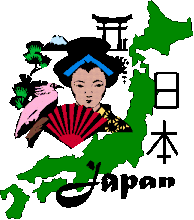| I'm so happy. | うれしいです。 | Ureshii desu. |
| I'm enjoying myself. | 楽しいです。 | Tanoshii desu. |
| I'm so sad. | かなしいです。 | Kanashii desu. |
| I'm lonely. | さびしいです。 | Sabishii desu. |
| I'm so sorry. | ざんねんです。 | Zannen desu. |
| I'm disappointed. | がっかりしました。 | Gakkari shimashita. |
| I'm very worried. | しんぱいです。 | Shinpai desu. |
| I feel very uneasy. | ふあんです。 | Fuan desu. |
| I'm afraid. | こわいです。 | Kowai desu. |
| I was surprised. | びっくりしました。 | Bikkuri Shimashita. |
| I was shocked. | おどろきました。 | Odorokimashita. |
| This is interesting. | おもしろいです。 | Omoshiroi desu. |
| This is boring | つまらないです。 | Tusmaranai desu. |
Some simple sentences
| Today's party was a lot of fun. | きょうのパーテイーはとても楽しかったです。 | Kyou no paatii wa totemo tanoshikatta desu. |
| You look happy. Has something good happened? | うれしそうですね。なにかいいことがあったんですか。 | Ureshisou desu ne. Nani ka ii koto ga atta n desu ka. |
| This novel is interesting. | このしょうせつはおもしろいです。 | Kono shousetsu wa omoshiroi desu. |
| I am very lonely as I don't have any friends. | ともだちがいなくてとてもさびしいです。 | tomodachi ga inakute, totemo sabishii desu. |
| I was surprised the price was so high. | あまりねだんがたかいのでびっくりしました。 | Amari nedan ga takai node, bikkuri shimashita. |
パーテイー。 Paatii. Party.
しょうせつ。 (小説) Shousetsu. Novel.
ともだち。 (友達) Tomodachi. Friend.
ねだん。 (値段) Nedan. Price / cost.
たかい。(高い) Takai. Expensive.
Another way of saying happy is しあわせ。(幸せ) Shiawase. This word also means Fortune, good luck and blessing.
幸せをねがう。 Shiawase o negau. Good Luck. (To wish someone) Good Luck.
幸せなかてい。 Shiawase na katei. A happy home
When you describe someone else's emotions "...sou desu (looks, seems") is added to the steam of the adjective.
| 山田さんはしあわせそうです。 | Yamada-san wa shiawase sou desu. | Mrs Yamada looks happy. |
| おじはとてもさびしそうでした | Oji wa totemo sabishi sou deshita. | My uncle seemed very lonely. |
There are a few different ways to say 'I love you' in Japanese. One is わたしはあなたが大好きです。(watashi wa anata ga dai suki desu.) There is a more direct and more romantic way to say 'I love you' and that is to simply say あいしてる(愛してる) Aishiteru. But it would be best to say that to your wife. The Japanese by their very nature, do not express their love openly. They tend to prefer to say ........が大好きです。
There is another word for love and that is こい (恋) Koi. This love for the opposite sex or a strong feeling or longing for a specific person. This too, can also be described as 'romantic or passionate love' Even though 恋 and 愛 both have the same meaning it is generally excepted that 恋 is selfish and 愛 is real love. There is a verse that explains the difference and reads like this: "Koi is always wanting. Ai is always giving."



